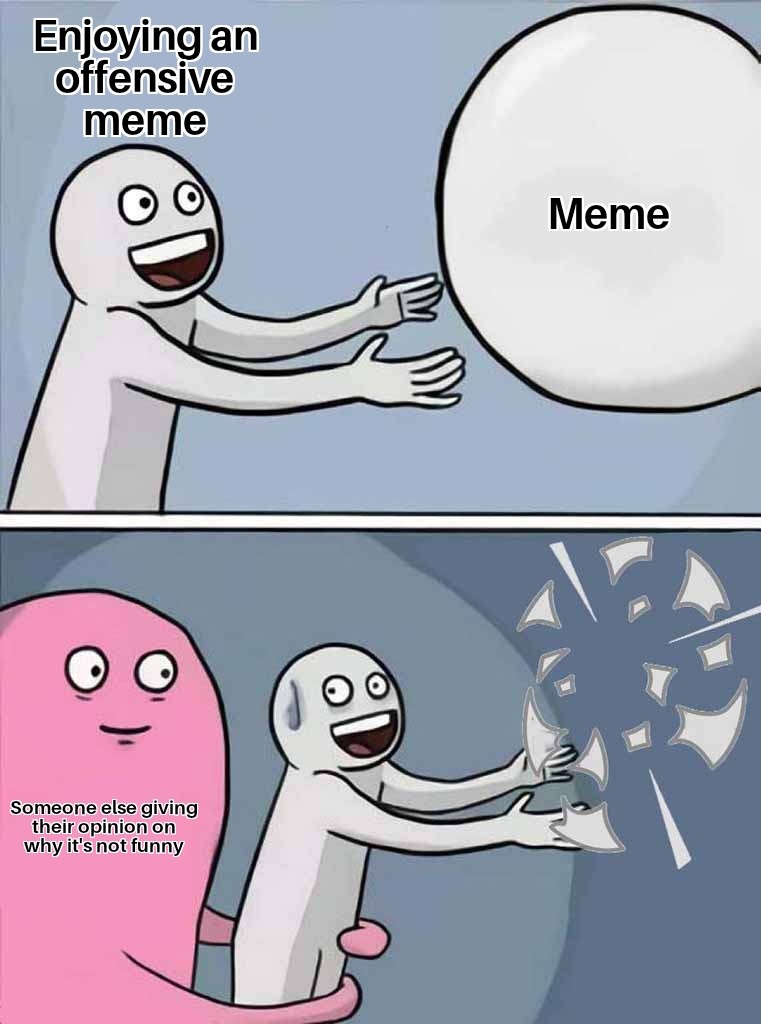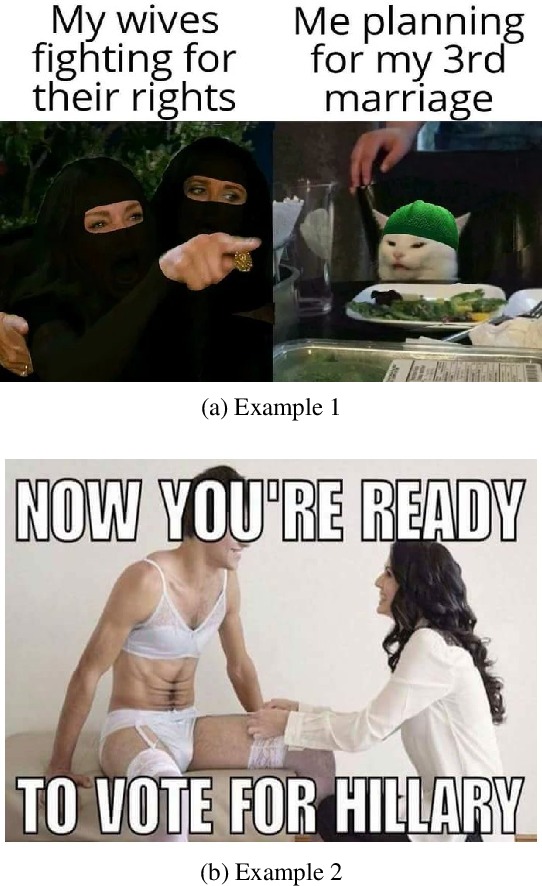When Memes Cross the Line: Navigating Offense

In the ever-evolving landscape of internet culture, memes have become a universal language, transcending borders and cultures. However, as with any form of expression, memes can sometimes push boundaries and cross lines, leading to the controversial realm of offensive memes. This article delves into the complex world of meme culture, exploring the fine line between humor and offense, and providing insights on how to navigate this delicate terrain.
The Rise of Meme Culture and Its Impact
Memes have become an integral part of our digital communication, shaping how we express ideas, emotions, and cultural commentary. The Drake meme, for instance, has become a go-to format for expressing preferences and opinions across various topics. The power of memes lies in their ability to convey complex ideas succinctly and humorously, often resonating with large audiences instantly.
However, this rapid spread and evolution of memes also bring challenges, particularly when it comes to content that may be considered offensive or inappropriate. The line between harmless fun and harmful content can often be blurry, leading to heated debates and controversies.
Understanding Offensive Memes
Offensive memes are those that cross societal boundaries of acceptability, often targeting sensitive topics, marginalized groups, or individuals in ways that can be hurtful or discriminatory. While humor is subjective, certain themes consistently push the boundaries of what's considered appropriate:
- Racial and ethnic stereotypes
- Gender and sexuality-based jokes
- Religious mockery
- Jokes about tragedies or sensitive events
- Personal attacks on individuals

It's crucial to understand that what one person finds funny, another may find deeply offensive. This subjectivity is at the heart of many debates surrounding meme culture and its impact on society.
The Psychology Behind Offensive Humor
To understand why offensive memes exist and why some people find them appealing, we need to delve into the psychology of humor. Research suggests that humor often involves a violation of social norms or expectations, combined with a benign context that makes the violation seem acceptable.
Offensive memes often push this concept to its limits, creating a tension between the violation (the offensive content) and the benign context (it's "just a joke"). For some, this tension creates a thrill or a sense of transgression that they find appealing. Others may use offensive humor as a way to cope with difficult topics or to challenge societal norms.
However, it's essential to recognize that the "it's just a joke" defense often falls short when confronted with the real harm that offensive content can cause to individuals and communities.
The Impact of Offensive Memes on Digital Culture

The proliferation of offensive memes has significant implications for our digital culture:
- Normalization of harmful ideas: Repeated exposure to offensive content can desensitize people to harmful stereotypes and ideas, potentially reinforcing prejudices.
- Cyberbullying and harassment: Offensive memes can be weaponized for targeted harassment, causing real emotional harm to individuals.
- Polarization: Controversial memes can deepen divides between different groups, fostering an "us vs. them" mentality.
- Free speech debates: The line between offensive content and protected speech is often blurry, leading to ongoing debates about censorship and freedom of expression online.
- Mental health impacts: For those targeted by offensive memes, the psychological impact can be significant, leading to stress, anxiety, and feelings of marginalization.
Navigating the Fine Line: Best Practices
As creators, consumers, and sharers of meme content, we all have a responsibility to navigate this terrain thoughtfully. Here are some best practices to consider:
- Develop critical thinking skills: Before sharing a meme, take a moment to consider its potential impact. Ask yourself: Could this content hurt someone? Is it punching up or punching down?
- Educate yourself: Learn about different cultures, experiences, and sensitivities. This knowledge can help you better understand why certain content might be offensive.
- Consider your audience: What might be acceptable in one context could be deeply offensive in another. Be mindful of who will see the content you share.
- Listen to feedback: If someone expresses that a meme is offensive, listen to their perspective. It's an opportunity to learn and grow.
- Use humor responsibly: Humor can be a powerful tool for social commentary and change, but it should be used thoughtfully and responsibly.
- Support positive meme culture: Engage with and share memes that bring joy, foster understanding, or provide thoughtful commentary without relying on offensive content.
The Role of Platforms and Communities
Social media platforms and online communities play a crucial role in shaping meme culture. Many platforms have implemented policies to combat hate speech and offensive content, but the effectiveness of these measures is often debated.
Aha Meme, as an online encyclopedia dedicated to internet meme culture, strives to provide a balanced and thoughtful analysis of meme trends, including discussions on the impact and implications of controversial content. By fostering informed discussions and providing context, platforms like Aha Meme can contribute to a more responsible meme culture.
Conclusion: Fostering a Positive Meme Culture

Navigating the world of memes, especially when it comes to offensive content, requires thoughtfulness, empathy, and a willingness to engage in open dialogue. While humor and creativity should be celebrated, it's crucial to recognize the power and potential impact of the content we create and share.
By fostering a culture of responsibility and respect in our digital interactions, we can harness the positive potential of memes while minimizing harm. This doesn't mean avoiding all controversial topics, but rather approaching them with sensitivity and awareness.
As we continue to explore and enjoy the rich world of meme culture, let's strive to create and share content that brings people together, challenges us to think critically, and adds positivity to our digital spaces. By doing so, we can ensure that memes remain a source of joy, connection, and creative expression for all.
Why we can't stop sharing crying memes is just one example of how memes can express complex emotions in a relatable way without crossing into offensive territory. As we navigate the ever-changing landscape of internet culture, let's aim to create and share content that uplifts, unites, and sparks meaningful conversations.